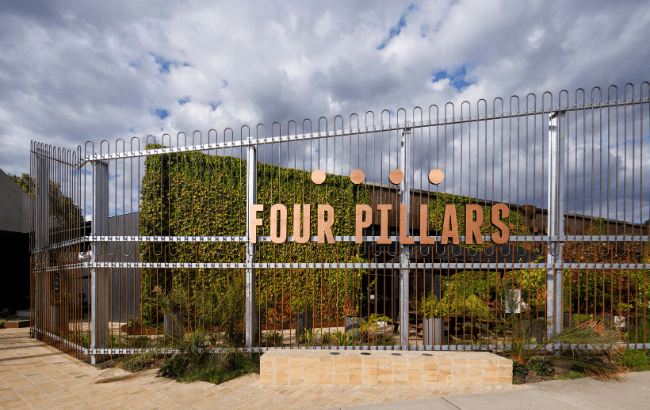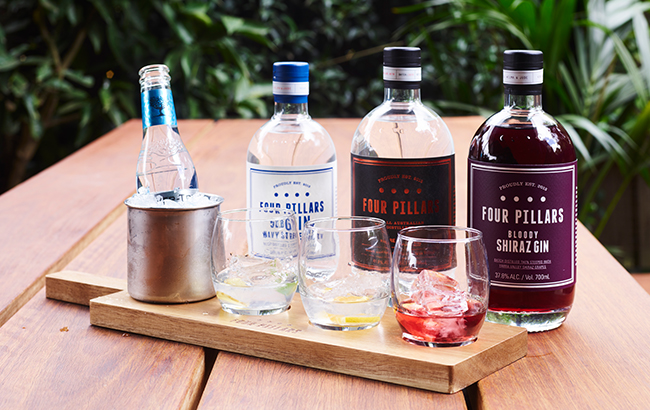Spirits tax hinders Australia’s global potential
Four Pillars co-founder and chief distiller Cameron Mackenzie believes Australia could miss out on being a “fantastic global player” in spirits due to the country’s excise tax policy.

Speaking to The Spirits Business, Mackenzie said that the twice-a-year tax increase that Australia’s spirits producers face erodes the AU$350,000 remission they can claim on the excise. He added that this has set up a ‘cottage industry’ as the “second you’ve claimed your remission, there’s not really any great incentive to invest in the industry”.
“We missed the great opportunity of becoming a fantastic global player, which Australia should be and is for wine. We’re well-known for beer, we’re great for produce, we should have a spirits industry. And that makes it very, very hard when the incentive is to stay small, effectively.”
The Australian government recently confirmed the country’s spirits tax will rise from AU$101.85 to AU$103.89 per pure litre of alcohol on 5 August 2024, having already risen in February this year.
The constant increases have seen the country’s distillers at odds with the government as the duty effectively cuts chances for worthwhile global expansion.
Mackenzie says there are a handful of larger players ready to grow and invest but are getting “stung” twice a year with the excise increases. He also emphasised that Australia is in a difficult position from a retail point of view. “We’re dominated by two big retail chains. It’s very hard to have a discussion with two chains, twice a year, that you have to have a price adjustment. The only way you can really absorb it, which is what we did, was to grow.”
As one of the first movers in Australian gin, Four Pillars was in a fortunate position where the brand could put more time and resources into sizing up. In July 2023, Kirin’s Australasian division, Lion, took over spirits producer Four Pillars.
On how Four Pillars has had to absorb the excise, Mackenzie explained: “Whilst we were getting efficiencies in, you know, glass and labels, and dry goods… those sorts of things, we were reinvesting that by basically absorbing excise rather than growing in our export markets or growing our tourism markets. We did that independently, just through different investment. Ideally, as you get those savings, you invest them into the growth of your business. Our investment with those savings was really just taking the increases on the chin.”
Mackenzie also highlighted that the tax policy has created a reluctance from larger companies to invest in Australian spirits. While Asahi’s purchase of Never Never Distilling Co was a “really healthy sign”, he maintained that the process is tricky: “I think within Australian whisky and within Australian rum that innovation is there and that opportunity is there. There’s even agave spirits now being produced at a really high level here. But simply because of that excise regime in Australia, in your home market, it’s tripping you up. That makes it very difficult.”

UK worry for small gin producers
Looking to the future, Mackenzie sees the next year and a half as the period when things might settle down for Four Pillars, but also held concern for smaller brands in the UK – where gin in particular is slowing down.
On the next steps for Four Pillars, he said: “I think if we hold our cards for the next 18 months, there’s a couple of markets that we’re looking at growth in – which are great as travel retail and duty free have bounced back really well. We’re seeing some good growth there. And I think it’s where we’re putting out our investment in marketing.
“We’ve always been pretty cautious, but I think there’s a lot more analysis to it these days. Trying to be clever, rather than opulent, and making sure every dollar you spend is really good bang for your buck.
“From a volume point of view, I think we’re using this as an opportunity to sort of build the platform for what we hope will be that next period of growth, after about 12-18 months when things settle down and there’s little uncertainty around the place – then I think we will see that.”
Addressing the UK gin slowdown and what it means for smaller Australian producers that haven’t established themselves to the extent that Four Pillars has, Mackenzie observed: “Unfortunately, what we’re seeing and you’re seeing it in the UK, as well, is that retailers are reducing their range of some categories. Gin is one of those categories.
“That probably won’t have an enormous effect on us because we’ve got a very, very strong brand and we’ve been around longer than most. But that’s really gonna hurt some of the smaller guys, who’ve worked hard to get a listing and then suddenly find that they’re no longer listed in some of those retail chains.
“If they haven’t built their tourism operation – their direct sales, their website – then I worry that the pinch on them is going to be hard. And that hurts the whole industry because it’s a really vibrant industry here. And we don’t want to see those smaller guys go.
“We want to see them grow. We’ve always felt the rising tide lifts all boats. We work really hard to have a viable industry. So we’ve gotta make sure those little guys, those smaller producers are protected well, and in a position to grow along with us.”
Related news
The Botanist Distiller's Strength launches in UK
